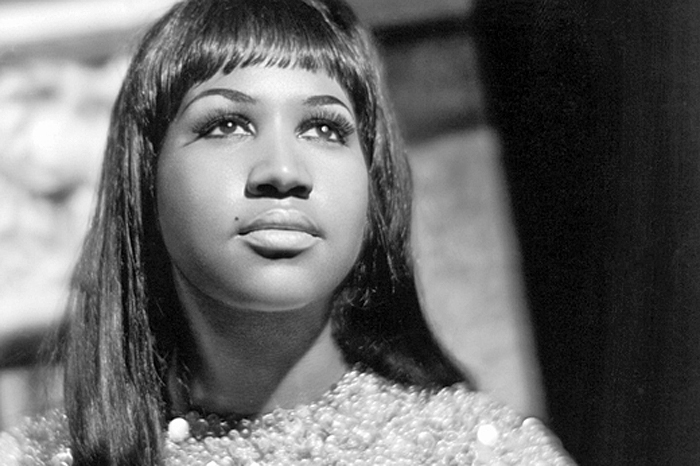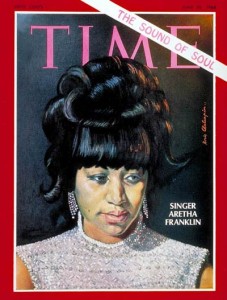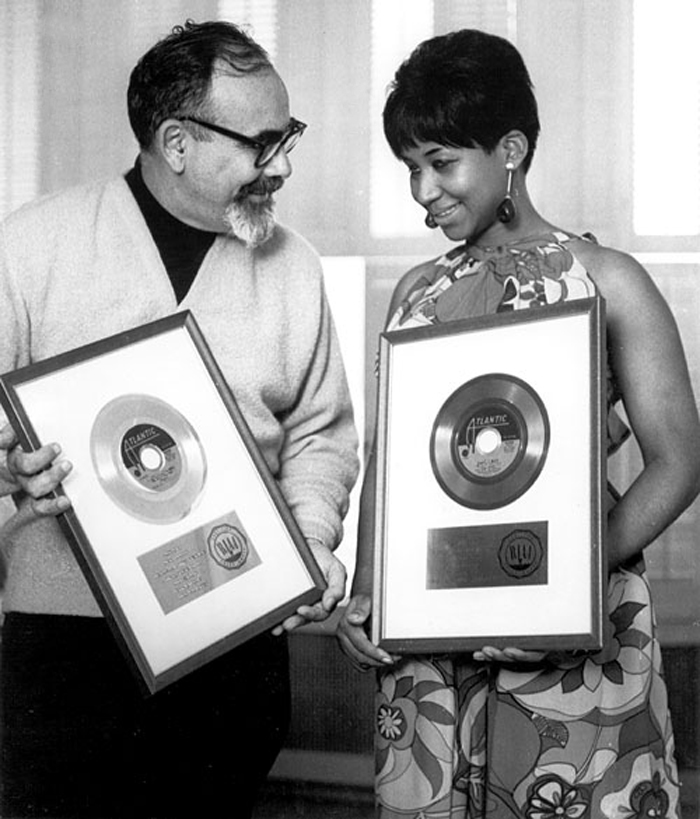 From the MCRFB NEWS archive: 1968
From the MCRFB NEWS archive: 1968
Miss Franklin Riding Big Wave In ’68 On New Found R&B Success

NEW YORK — Before soul music moved “downtown” into the money, Aretha spent her Sundays singing in her father’s Baptist church in Detroit. Then, eight years ago, Aretha jumped off the gospel train, arrived in New York and kicked off a career that so far has netted her riches, five gold records, including one for an album, and a Billboard citation as the top female vocalist in 1967. But it wasn’t until last year, when “Lady Soul” met Lady Luck dressed up at Atlantic Records did Aretha move into the real money.
“I wanted to have a gold record,” remembers Aretha. “I wanted one so bad — to sell a million of something.” Jerry Wexler, Atlantic’s dean of soul, brought Aretha from Columbia, where her talent sputtered in their “pop inclined” climate, and gave her complete freedom to further expand more of her abilities and talents. But along with her artistic freedom, Wexler also supplied the tools to form her own free expression into self-discovery; tuned-in musicians from Memphis, a full hopper of materials to pick from, and plenty of gold records lining the walls for inspiration. “Atlantic came up with the same sound that I was feeling at the same time,” said Aretha. What Wexler did was allow the singer to grow at her own pace, into her own style.

In 1968, Miss Franklin will earn more than $750,000. Atlantic Records will reap a portion of Aretha’s record harvest in return for a million-dollar contract payable over the next several years. On the strength of her soaring stock, Time magazine toasted Miss Franklin with a front cover and, with a five-page story in the June 28 issue, marking her official coronation as “Lady Soul.” Miss Franklin will only talk in public about the cover, but not about what’s inside. The length of the article, she says wryly, is “something to speak about.” Privately, she thinks Time “could have stayed a little closer to the fact” concerning her personal life.
Husband as Manager
In addition to her Atlantic contract, Aretha has signed up with her husband, Ted White, for personal manager. “We haven’t had any real trouble so far,” said Aretha about the boss-husband twist, “but it is difficult having your husband as manager. You never know what side he’s coming from — from the husband side or manager side.” But when the bookings are in and they can retreat to their 12-room colonial home in Detroit as a couple and not as partnership, Aretha’s business demons dissolve with the immediate pleasure of her family. “All I want to do,” Aretha muses, “is to be able to function as a simple, honest and true citizen as a human being.”
On stage, Aretha blends earthly humor with the dignity of a Sunday sermon. She will talk about her stiff piano stool back, the sting of new shoes pinching at her heels and, the next moment, belt out “Think” or “Baby, I Love You” with brilliant bursts of gospel power, back-porch blues or rhythm and blues. She toured Europe in the spring and plans to do it again. “It was the greatest,” she said. In Holland, the audience threw flowers — bouquets of flowers and roses — and in Stockholm, the Crown Prince and Princess sat in the audience.”
But despite the gold already won and new gold on the way for albums Aretha: Lady Soul and Aretha Now, she shuns the refinement of pop royalty. “I by about 20 pounds of chitlings every two weeks,” says the young soul singer. Ray Charles called her “one of the greatest I’ve heard any time.”
Miss Franklin will follow up her recent Madison Square Garden appearance for the Martin Luther King fund with a special solo concert at Newport in August. On August 20, she will be featured on an ABC-TV special and, later this summer, she will perform in Caracas, Venezuela. END
___
(Information and news source: Billboard; July 13, 1968)

![]()
